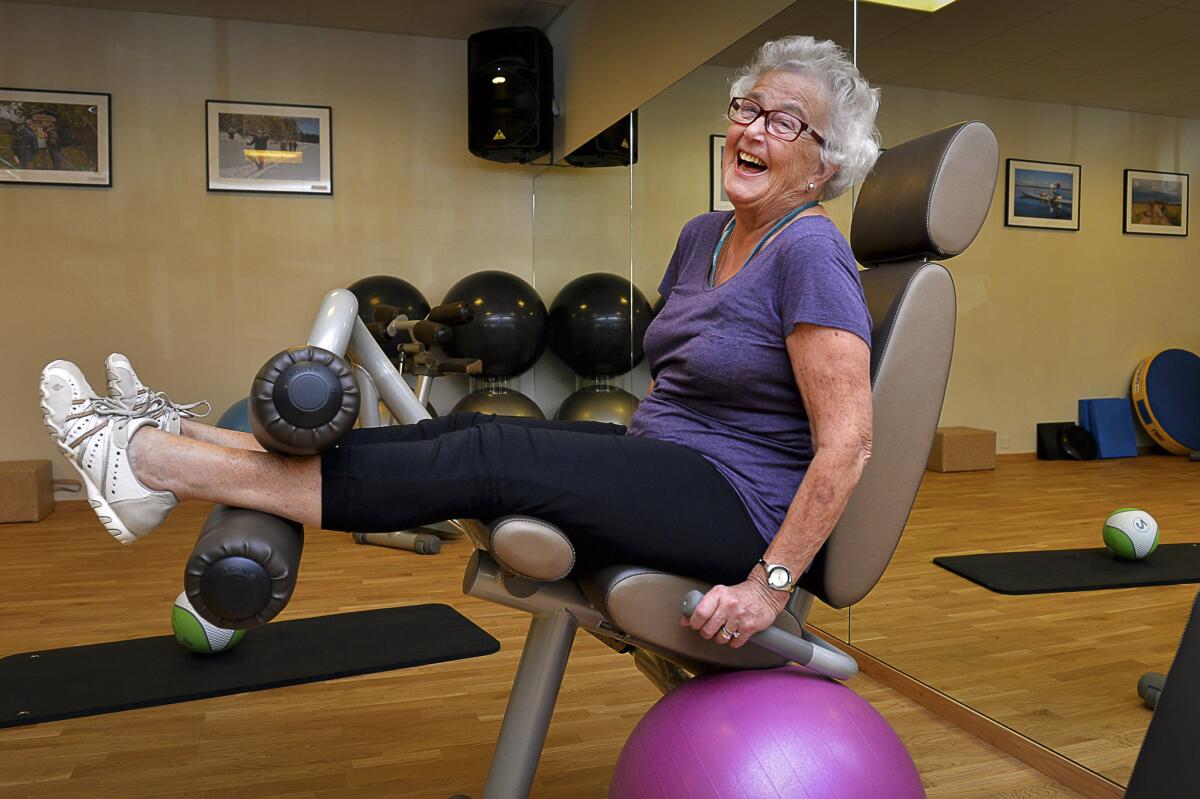Norway ranks No. 1, Afghanistan last, in quality of life for over-60s

- Share via
No country takes better care of its seniors than Norway, where those over 60 enjoy social security bankrolled by the nation’s oil wealth and are well represented in politics and the workplace, a global study on aging reported Wednesday.
By contrast, the 2014 Global AgeWatch Index found, the worst place in the world to grow old is Afghanistan, where per capita GDP is a mere $1,100 and life expectancy only 50 years.
The annual rankings based on income security, healthcare access, social benefits and community involvement reflected the generally greater affluence of Northern Hemisphere countries over those below the equator, with nine of the 10 best places for the elderly found in Northern Europe, North America and Japan. The geographic outlier was New Zealand, which ranked No. 10.
The study by HelpAge International, a London-based global coalition of organizations committed to improving living standards for the world’s rapidly expanding over-60 population, examined the circumstances in which older people live in 96 countries, up from 91 in last year’s survey.
The aim of the rankings, the authors said, was to encourage governments worldwide to take action now to ensure adequate support for those living into their seventh decade and beyond, who will account for more than 20% of the world population by 2050 and already constitute that share in many developed countries.
“Longer lives are a triumph of human development and are contributing to growing numbers of older people worldwide,” the study summary observes in urging governments to prepare for a future where as many as 4 in 10 citizens will be relying on pensions or retirement investment proceeds for their well-being.
Those older than 60 account for 20.1% of the population of the United States, which was ranked eighth in quality of life for the aging. By 2030, that share will rise to 25.6% of the population and to 27% by 2050.
Over-60s already account for at least 1 in 5 citizens of the 10 top-rated countries, except for Iceland (18.3%) and New Zealand (19.7%).
Japan is experiencing the most dramatic rise in the number of elderly, with nearly 33% of the population older than 60 now and an expected expansion by 2050 to a staggering 42.7%. That is largely the result of the country having the longest expected life spans on the planet, which other studies attribute to the lean and fish-intensive national diet.
Life expectancy at age 60 is one of the key measures of living standards in the HelpAge study, and Japan topped that indicator with the average 60-year-old expected to live an additional 26 years.
Income security factored significantly into the top-ranked places for aging, with Norway, Sweden, Switzerland, Germany, the Netherlands and Iceland providing pensions to 100% of seniors. Japan and New Zealand provide social security to 98% of their citizens over age 60, with the figure for Canada 97% and the United States, 92%.
The researchers praised governments such as Mexico, which ranked 30th among the countries studied, for policy adjustments that have boosted living conditions for the elderly. Mexico rose 26 places in the rankings from last year, it was noted, as it now provides pensions for 88% of its citizens over age 65.
Turkey, on the other hand, was ranked 77th, in spite of having greater per capita national wealth than Mexico and about the same percentage of its citizens guaranteed some sort of pension. The study observed that the income provided many of the elderly is inadequate or outpaced by the cost of living.
“For too long, older people have been excluded from international and national development planning and programs,” HelpAge International Chief Executive Officer Toby Porter notes in the study’s foreword. “This approach is outdated and unsuited to the reality of people living longer all over the world.”
Failing to address the demands of aging populations threatens “pernicious consequences for older people,” potentially leaving them with neither a voice in public life nor the means to ensure a dignified end-of-life existence, Porter warns.
Follow @cjwilliamslat for the latest international news 24/7
More to Read
Sign up for Essential California
The most important California stories and recommendations in your inbox every morning.
You may occasionally receive promotional content from the Los Angeles Times.














